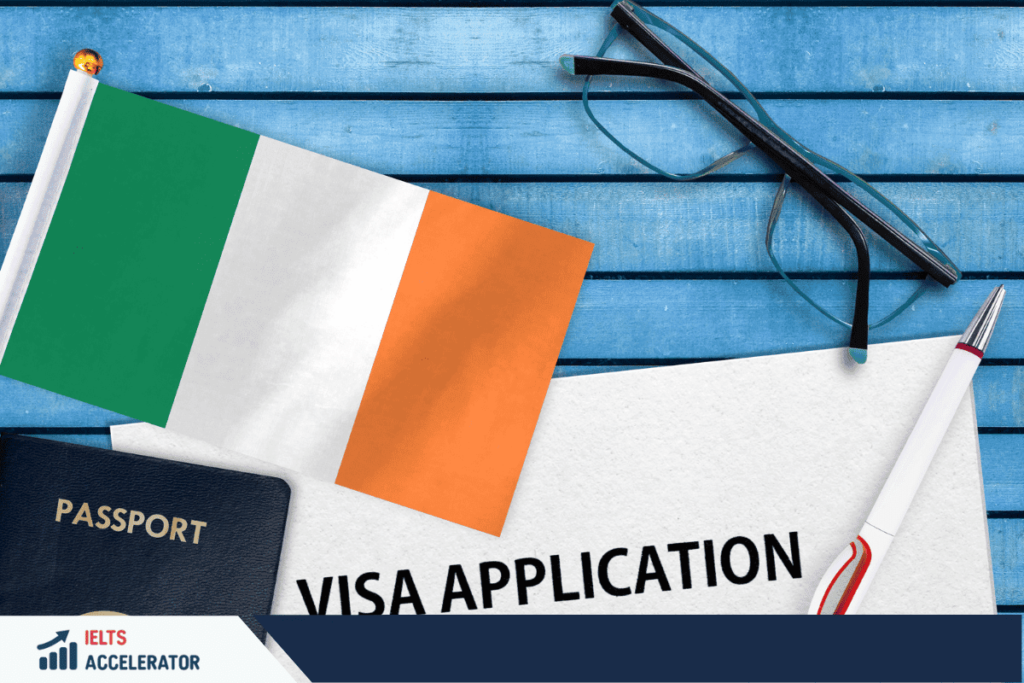So, you’ve set your sights on studying or working in Ireland, but there’s one hurdle standing in your way: achieving your IELTS score. Don’t fret – our blog has got you covered with everything you need to know to conquer this challenge.
From understanding the importance of a good IELTS score for gaining admission to universities in Ireland, to getting that dream job in Dublin, we’ll walk you through all the essential information you need to understand what you have to do to reach your goal. So get ready to dive in and set yourself up for success in Ireland!
Why Choose IELTS for Studying and Working in Ireland?
Let me tell you why choosing IELTS is the way to go. Well first of all First off, IELTS is like the holy grail when it comes to proving your English proficiency. It’s widely recognized and trusted by universities, employers, and immigration authorities all across Ireland.
That means no one’s going to question whether or not you actually speak English fluently – your IELTS score speaks for itself. Plus, with IELTS being accepted by over 10,000 organizations worldwide, including top universities in Ireland like Trinity College Dublin and University College Cork, you can rest assured that your hard-earned score will open doors for you wherever your journey takes you. So if you want to make sure your dreams of studying or working in Ireland become a reality, IELTS is the golden standard.
IELTS for Studying in Ireland

why is this important for getting into universities and colleges in Ireland? Well, let me break it down for you. Irish institutions want to make sure that their students can communicate effectively in English both inside and outside of the classroom. That’s where IELTS comes in handy – it helps them assess your language skills so they know you’ll be able to keep up with coursework and participate fully in campus life.
Now, when it comes to those minimum requirements from top universities in Ireland, things can get a bit tricky. Each institution sets its own standards for IELTS scores, so it’s crucial to do your research beforehand. For example, Trinity College Dublin typically asks for an overall band score of 6.5 or higher across all four components (listening, reading, writing, speaking). Meanwhile, University College Dublin tends to require a slightly lower score of around 6.0-6.5 depending on the specific program you’re applying to.
IELTS Score for Ireland Student Visa
To apply for a student visa in Ireland, you need to meet the minimum IELTS score requirement set by the immigration authorities which is usually simply the score the university your are applying to asks for. The magic number you should aim for is usually around 6.0 to 6.5 overall band score, with no individual section falling below 5.5. So, buckle up and get ready to hit the books!
To prepare for the IELTS exam and ensure you meet the visa requirements, start by familiarizing yourself with the test format and practicing each section diligently. Take advantage of online resources, such as practice tests and study guides, to sharpen your listening, reading, writing, and speaking skills. Remember that consistency is key – so make a study schedule and stick to it religiously.
Getting the right study system is often an issue for students starting studying for the IELTS exam . With dedication, perseverance, and the truth is in the majority of cases, taking a course, achieving the right score in the IELTS exam, although not a piece of cake – or perhaps in this case, a slice of Irish soda bread! – is possible.
IELTS Score for Working in Ireland
When it comes to working in Ireland, having a good IELTS score is crucial. Employers in Ireland often require candidates to have a certain level of English proficiency, and the IELTS exam is a widely recognized way to demonstrate this. Depending on the type of work visa you are applying for, the minimum IELTS score required can vary.
For example, if you are seeking a Critical Skills Employment Permit, you will need an overall band score of at least 6.5 with no individual band score below 6.0. On the other hand, for a General Employment Permit, a slightly lower overall band score of 5.5 may be acceptable. So whether you’re dreaming of working as an engineer or bartender in Dublin, hitting the right IELTS score in your exam is he key to unlocking exciting job opportunities in Ireland.
How do I apply for PR in Ireland?
If you’re looking to make Ireland your permanent home, you’ll need to navigate the process of obtaining Permanent Residency (PR). This involves meeting certain criteria set out by the Irish Naturalization and Immigration Service (INIS). To start off, you’ll have to submit an application form along with all necessary supporting documents. This includes proof of identity, financial stability, and a clean criminal record and of course demonstrate your proficiency in English, which can be done through the International English Language Testing System (IELTS) exam.
If you are applying for PR after completing your studies in Ireland then to qualify you must possess a valid work authorization and have resided in Ireland for a minimum of 5 years.
The IELTS qualification threshold is generally set around an overall band score of 6.0 and achieving this is crucial for your PR application – of course the government wants to know that you can effectively communicate in one of Ireland’s official languages (there are 2 by the way English and Gaelic, but your probably better of doing the English!). So brush up on your language skills and get ready to tackle the PR process like a pro!
IELTS for Ireland Work Visa
If you’re thinking about applying for a work visa in Ireland, then you’ll need to face the music when it comes to the IELTS exam. The keyword here is preparation – don’t leave things to chance! To meet the requirements for an Irish work visa, you’ll need to achieve a certain score on the IELTS test. This typically means scoring at least 6.5 overall with no band below 6.0. So, how do you reach this lofty goal? Well, first off, practice makes perfect! Dedicate some time each day to studying and familiarizing yourself with the format of the exam.

Secondly, focus on your weaker areas – whether that’s listening, reading, writing or speaking. Seek out resources like online courses or study groups to help boost your skills in these areas. Lastly, don’t forget about time management during the exam itself – remember that every minute counts! With dedication and hard work, you can ace that IELTS test and be one step closer to securing your dream job in Ireland.
Study Visa vs. General Employment Work Permit
For the study visa, you’ll need to show proof of acceptance into a recognized educational institution, sufficient funds for living expenses, and health insurance coverage.
On the other hand, obtaining a general employment work permit requires having a job offer from an employer in Ireland, meeting salary thresholds set by the government, and proving that no local candidates were suitable for the position.
Now let’s talk about everyone’s favorite part – IELTS! This English proficiency test plays a crucial role in both types of visas. For study visas, you’ll typically need to achieve a certain score to demonstrate your ability to follow lectures and participate in discussions.
Similarly, for general employment work permits, employers may require specific IELTS scores as proof of your language skills for effective communication with colleagues and clients. So whether you’re hitting the books or hitting up job interviews in Ireland, prioritizing your language skills is crucial.





